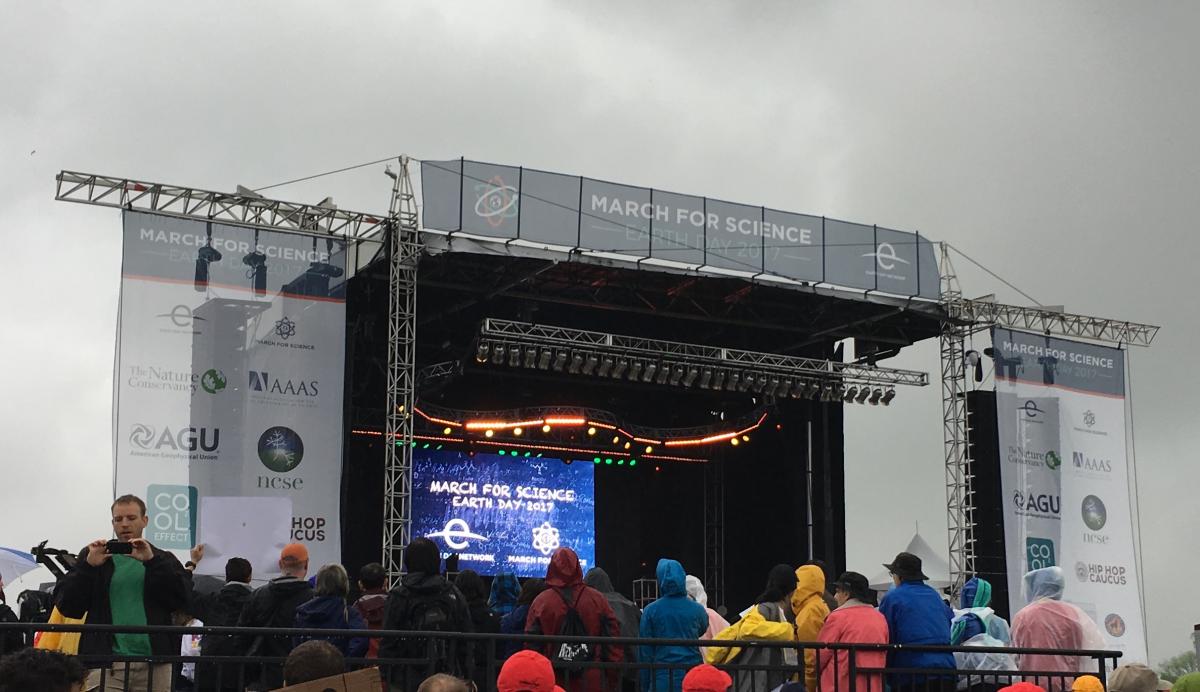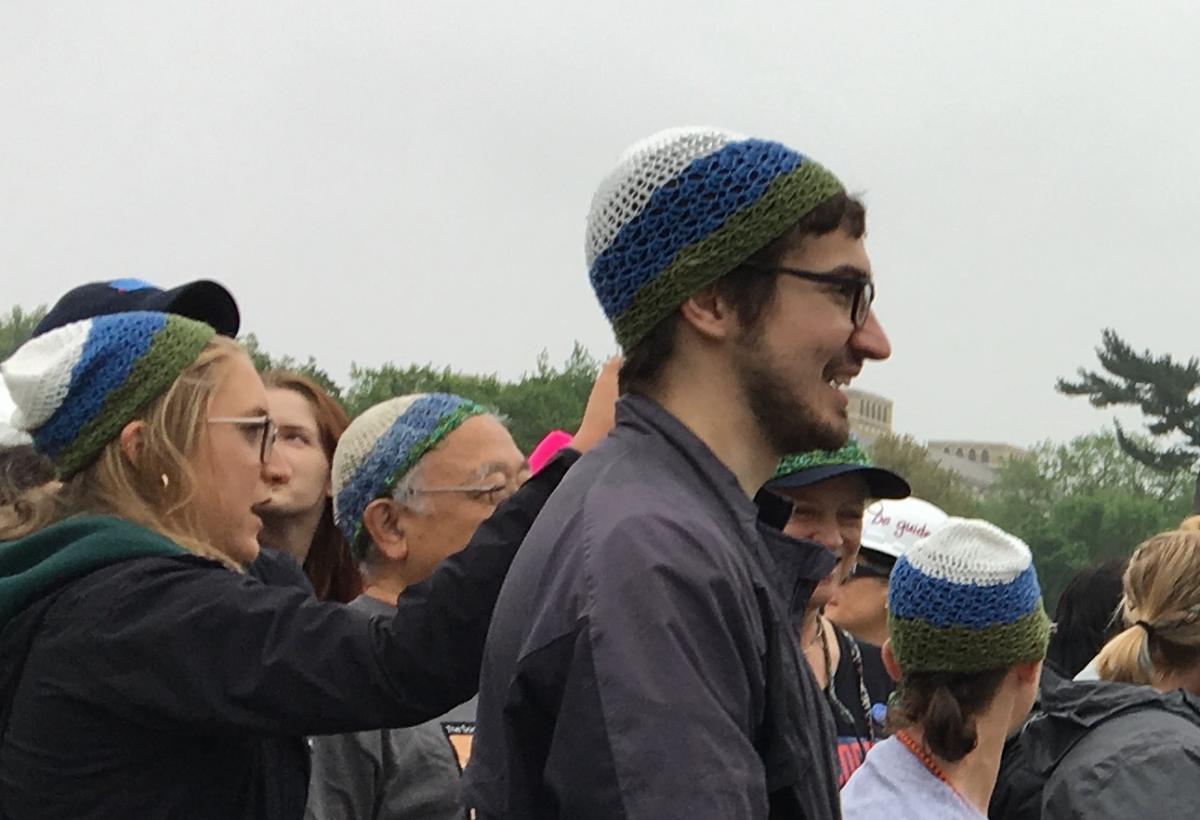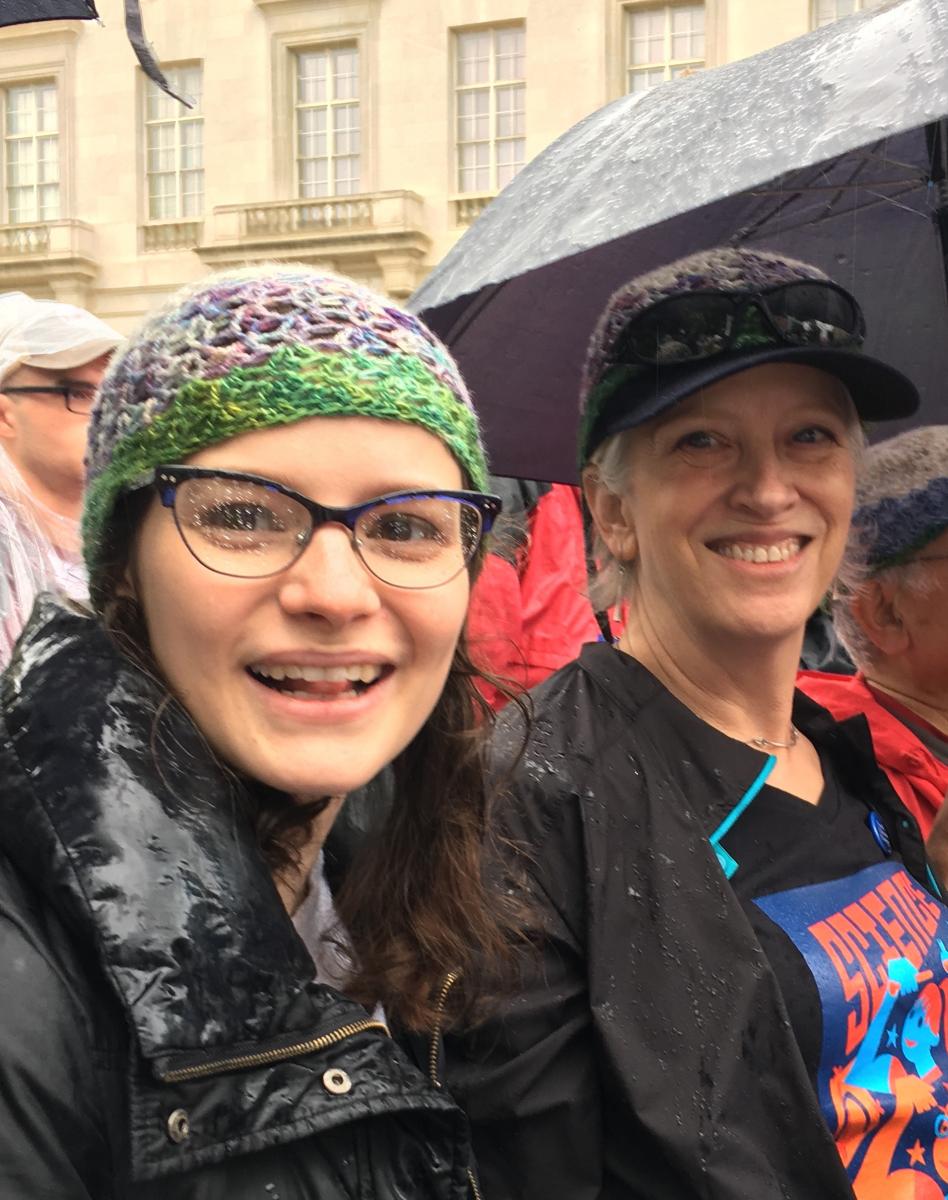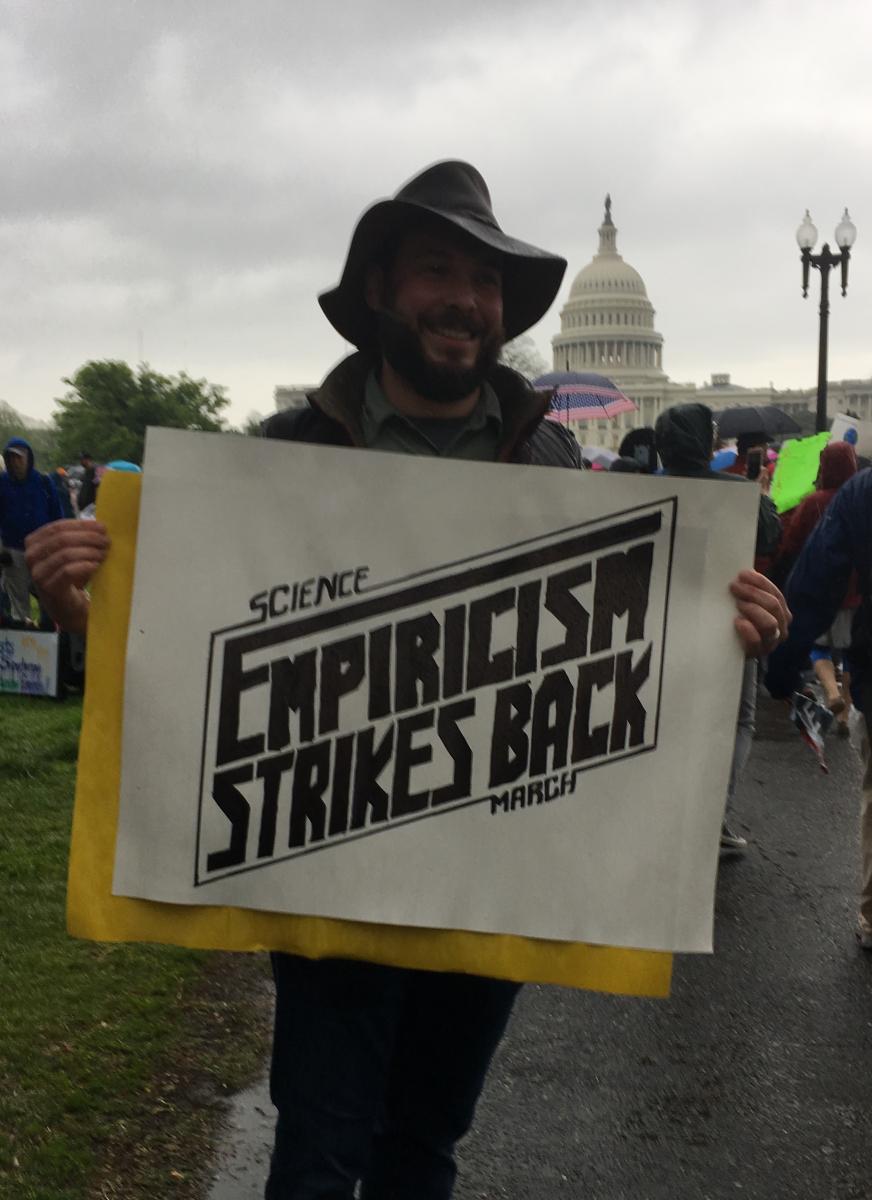 I spent Saturday wet, cold, but exhilarated nonetheless, on the National Mall, with some 40,000 other participants in the March for Science. NCSE was one of the earliest partners of the march, and our logo was prominently displayed on the big stage. There were dozens of speakers with stories that spanned generations and disciplines. NCSE didn't have a speaking role, but I found myself wondering what I would have said if we did. And I realized that I did have a message that I didn't hear that day, a story that emerges from NCSE's unique work supporting teachers.
I spent Saturday wet, cold, but exhilarated nonetheless, on the National Mall, with some 40,000 other participants in the March for Science. NCSE was one of the earliest partners of the march, and our logo was prominently displayed on the big stage. There were dozens of speakers with stories that spanned generations and disciplines. NCSE didn't have a speaking role, but I found myself wondering what I would have said if we did. And I realized that I did have a message that I didn't hear that day, a story that emerges from NCSE's unique work supporting teachers.
Before you read this, tak e a moment to close your eyes, imagine yourself surrounded by thousands of enthusiastic people carrying signs and wearing funny hats (we had melting ice cap caps, for example), standing on soggy ground in the cold rain, watching the giant sound stage or a Jumbotron, with the Washington Monument standing off to your left, circled by American flags. Behind you, if you're on high ground, a ways off beyond the crowd, you can see the White House. OK, ready? Here's what I would have said during my allotted four minutes:
e a moment to close your eyes, imagine yourself surrounded by thousands of enthusiastic people carrying signs and wearing funny hats (we had melting ice cap caps, for example), standing on soggy ground in the cold rain, watching the giant sound stage or a Jumbotron, with the Washington Monument standing off to your left, circled by American flags. Behind you, if you're on high ground, a ways off beyond the crowd, you can see the White House. OK, ready? Here's what I would have said during my allotted four minutes:
Thank you so much for coming out to march for science! My name is Ann Reid and I’m the executive director of the National Center for Science Education. I’m also a scientist, part of a team that studied the 1918 influenza virus – a virus that circled the globe in just months during World War I, killing up to 50 million people. In studying that virus, our team stood on the shoulders of generations of microbiologists who had worked to understand the invisible agents of deadly diseases, physicians who had worked to diagnose and cure them, and epidemiologists who had worked to understand their spread. Science is a team sport, with a season that stretches across the centuries.
We also owed an enormous debt to generations of science teachers who had inspired and prepared all of the brilliant scientists of yesterday and today.

During my work on the flu, I met elected officials who wanted to know how our research might improve public health policies. I met military leaders who wanted to know how to protect today’s soldiers. I met writers and filmmakers who wanted to bring this dramatic story to life. They weren’t scientists themselves, but they cared deeply about science.
And you know what all of those people had in common? They all had at least one terrific science teacher in their lives – someone who opened their eyes to the power of science to explain how the world works. So did I. My 8th grade biology teacher, Miss Bacha, was the first to spark that interest in me.
Science teachers ar

e the foundation of our entire scientific enterprise. All around this country, many of their students will not grow up to be scientists – they’ll be the senators and representatives who wouldn’t dream of making decisions without scientists at the table, the artists and writers who will bring science to life, the citizens who will confidently think like scientists themselves.
Science learning is happening everywhere. Future Nobel prize winners may be learning about science in Omaha or Oahu, New Orleans or New Jersey. Our future scientists are growing up in red counties and blue counties. Republicans and Democrats alike want their children to get good science educations. Science learning knows no political or geographic boundaries.
That’s why the National Center for Science Education works hard to make sure that every science teacher in America has the support and expertise they need to teach science effectively and with confidence – especially topics that face a lot of societal controversy, like evolution and climate change.
What can you do to help? When you get home, call your local science teachers. Thank them! Ask what they need. Or write an op-ed. Run for the school board. Let your elected officials know that you think science education is important. You can visit our website at NCSE.com for more ideas.
Because of Miss Bacha, I started down a path that eventually allowed me to play my small part in understanding a devastating disease. Because of the science teachers of today and tomorrow, our children will be ready to bring science into every part of society where it can inform decisions and solve problems. Let’s get to work making sure they have everything they need to do that job, because our future depends on it.
I spent Saturday wet, cold, but exhilarated nonetheless, on the National Mall, with some 40,000 other participants in the March for Science. NCSE was one of the earliest partners of the march, and our logo was prominently displayed on the big stage. There were dozens of speakers with stories that spanned generations and disciplines. NCSE didn't have a speaking role, but I found myself wondering what I would have said if we did. And I realized that I did have a message that I didn't hear that day, a story that emerges from NCSE's unique work supporting teachers.
e a moment to close your eyes, imagine yourself surrounded by thousands of enthusiastic people carrying signs and wearing funny hats (we had melting ice cap caps, for example), standing on soggy ground in the cold rain, watching the giant sound stage or a Jumbotron, with the Washington Monument standing off to your left, circled by American flags. Behind you, if you're on high ground, a ways off beyond the crowd, you can see the White House. OK, ready? Here's what I would have said during my allotted four minutes:

